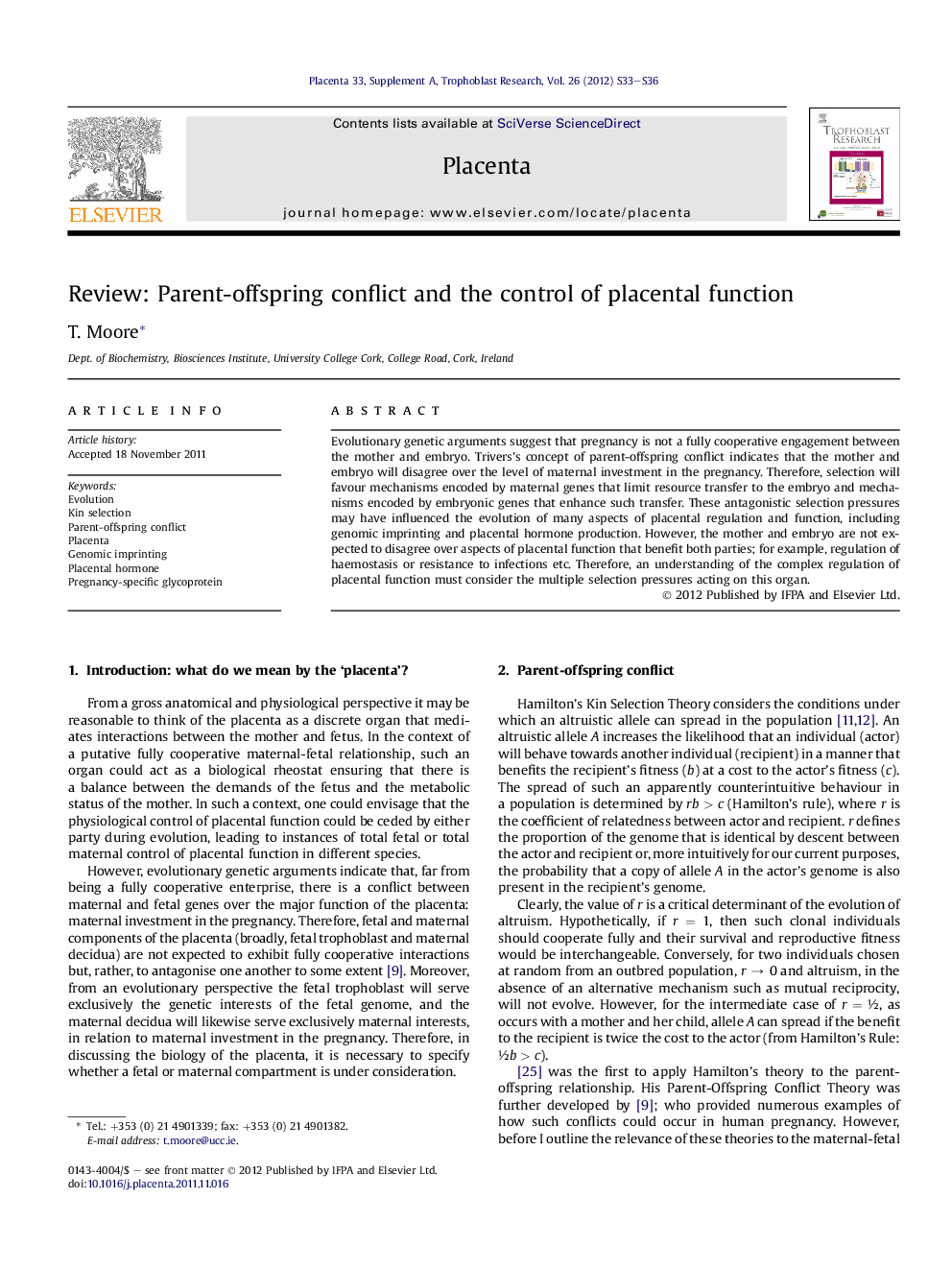| Article ID | Journal | Published Year | Pages | File Type |
|---|---|---|---|---|
| 5896068 | Placenta | 2012 | 4 Pages |
Abstract
Evolutionary genetic arguments suggest that pregnancy is not a fully cooperative engagement between the mother and embryo. Trivers's concept of parent-offspring conflict indicates that the mother and embryo will disagree over the level of maternal investment in the pregnancy. Therefore, selection will favour mechanisms encoded by maternal genes that limit resource transfer to the embryo and mechanisms encoded by embryonic genes that enhance such transfer. These antagonistic selection pressures may have influenced the evolution of many aspects of placental regulation and function, including genomic imprinting and placental hormone production. However, the mother and embryo are not expected to disagree over aspects of placental function that benefit both parties; for example, regulation of haemostasis or resistance to infections etc. Therefore, an understanding of the complex regulation of placental function must consider the multiple selection pressures acting on this organ.
Related Topics
Life Sciences
Biochemistry, Genetics and Molecular Biology
Developmental Biology
Authors
T. Moore,
